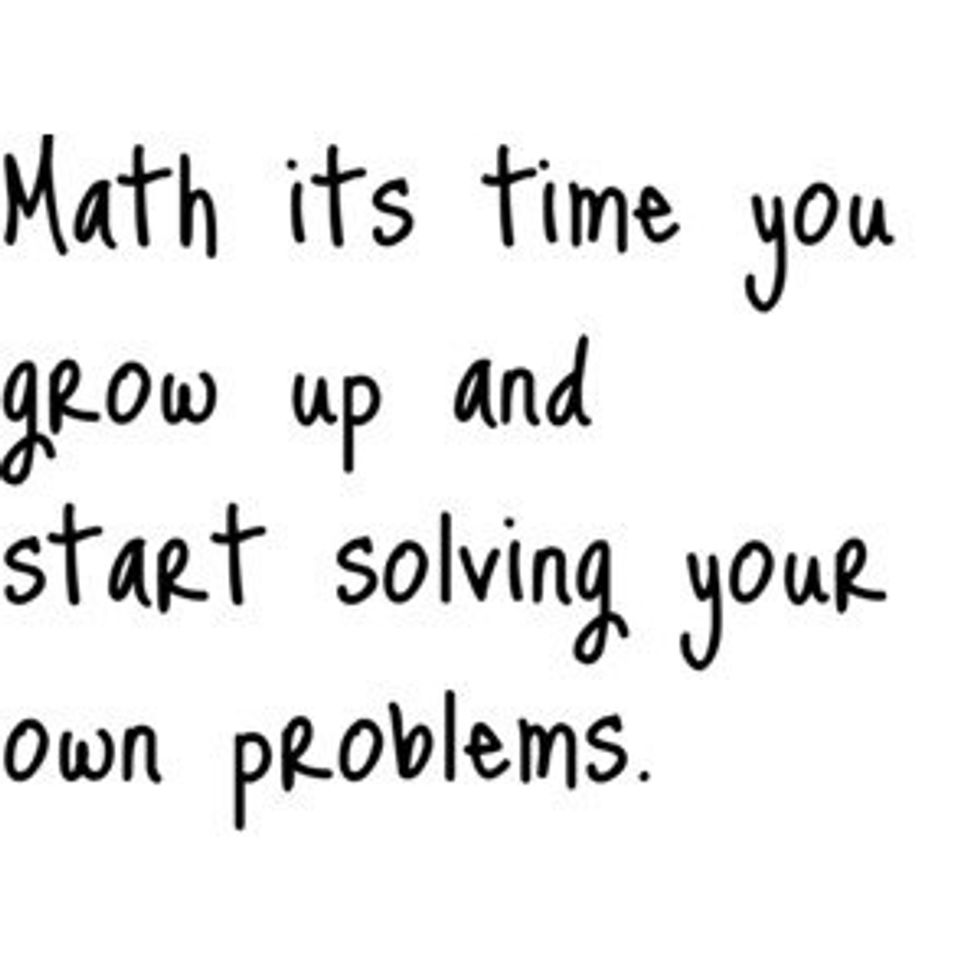Math is used in day to day life and teaches life-long skills that everyone needs to know. Yes, I'm being serious. Math can be someone's favorite subject in school and that for others it is feared, hated, and avoided at all costs but it is actually helpful for a number (pun intended) of reasons, not necessarily what you would think.
Recommended for you
Everyone should know what a number is, how to add, subtract, multiply, those simple things we were taught well before high school math started complicating things. Now we have calculators so mental math isn’t really necessary but we still use math to calculate a tip, total a bill, balance a budget, etc. Although I may never need to know how to differentiate a function like they try to teach us in calculus, or even understand what that means, the act of attempting to learn it has taught me and many other students skills that will help in day to day life, skills that don't necessarily have to do with numbers in any way.
One example of a skill that math teaches us is how and when to ask for help. Almost any high school student has had a math problem they just stare at in complete confusion and horror with no idea what to do. However, due to the importance of grades and upcoming tests, they still need to answer the problem and understand how they got that answer. I add the understanding part because some students get their answers by cheating off of other students and although this may solve the sort term dilemma of one homework assignment it doesn't help them at test time. The best response to a difficult problem that you know you can't solve on your own is to ask either a peer or the teacher for help. And this is true in the workforce as well. When you come across a problem you can't solve the best solution is to ask a peer or a superior for assistance or advice. The ability to know when to ask for help is a good skill that can only be taught through utter confusion.
Some people use math in their careers, such as accountants, engineers, computer programmers, and so on. Now that I’m in college I can see the many different requirements for the different majors and how math may or may not be a part of their future careers. Some students take math classes focused on logical thinking rather than math problems because they won’t need to know how to find the area of a triangle in their intended careers. However, an engineer does need to be able to find the area of an object and more complicated things that an English major, for example, would never use. This shows the differences on what math everyone needs to know but one thing is for sure, everyone needs to have learned math even if just for the skills they obtained in doing so.




















